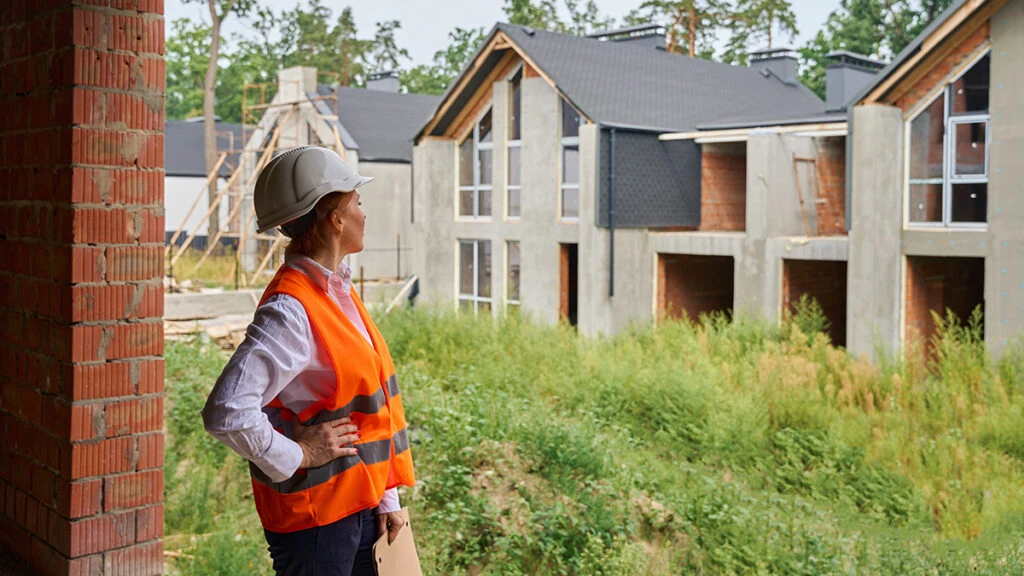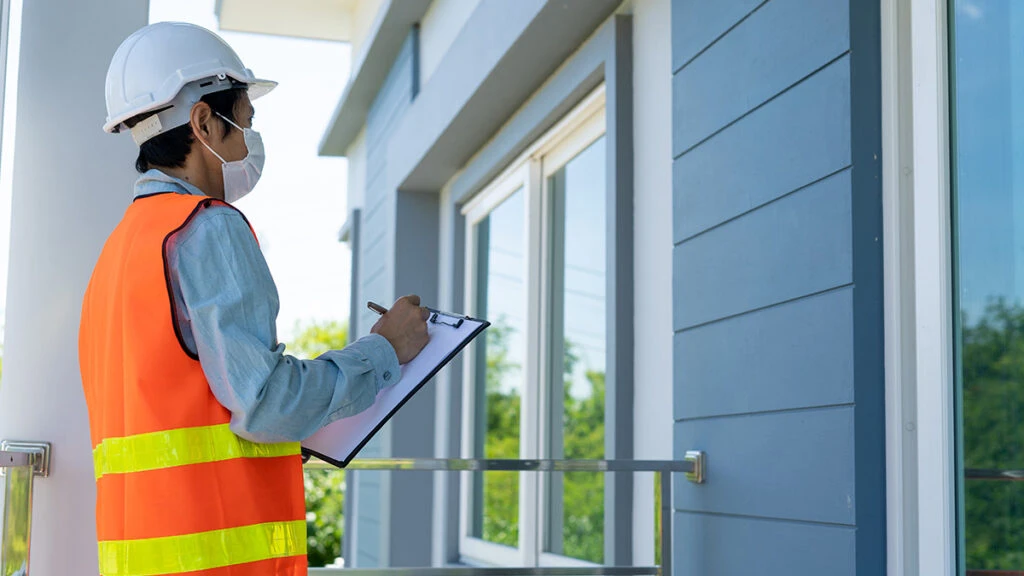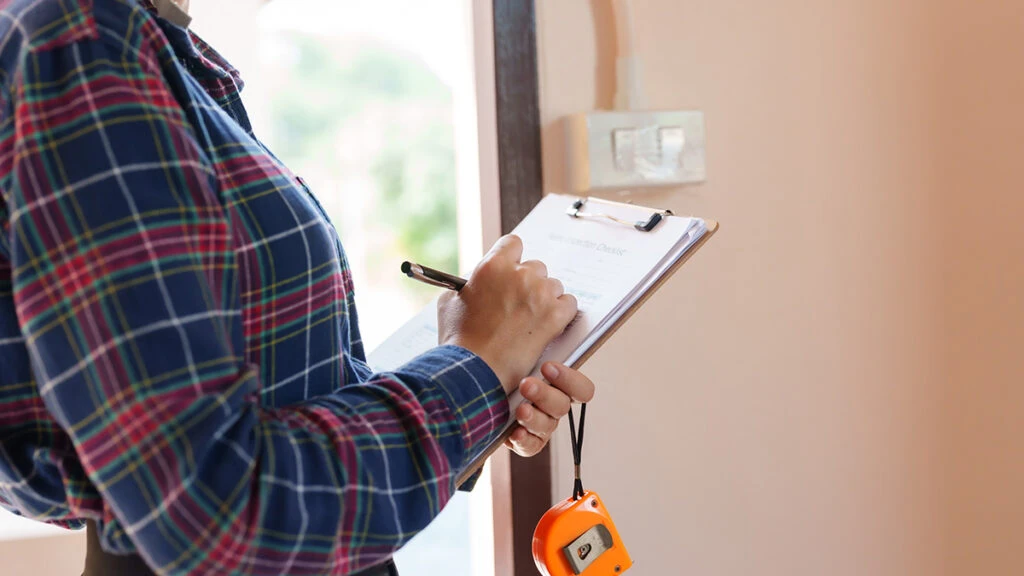
What is a private building inspector?
A building inspector is a professional responsible for ensuring that buildings comply with building codes, safety regulations, and other relevant standards. However, there is a key distinction between a private building inspector and a local authority building inspector.
A local authority building inspector, employed by the local government, primarily focuses on verifying that minimum code requirements are met. In contrast, a private building inspector is often hired by homeowners or developers to provide a more thorough and independent assessment of the construction work.
Remember that an inspector is not necessarily an Architect or an Engineer. They are not responsible for the structural design of the building and will normally require the services of a professional to assess more complex parts of a home.
In many states, a structural engineer’s inspection is often mandated to ensure that the building’s structure is sound and capable of withstanding various environmental forces. This may come at an additional cost but will certainly help in avoiding delays and potential disasters.
1. The Role of Building Inspectors in Construction
In short, a building inspector’s role is to ensure that the construction activity on a building site aligns with the minimum standards set out in local building code. It is important to note that these are visual inspections and can be done by a local authority inspector or a certified private inspector.
The building department has immunity against any structural failures as they do not ensure structural stability or quality of execution. This falls in the scope of private inspector’s, builders and each professional employed on a project.

2. Why Choose a Private Building Inspector?
Unlike your local BCO inspectors, a private inspector provides a more detailed and thorough evaluation of your building. These private inspectors are not limited by the same constraints as local building departments and can offer specialist inspections, often outsourced to professional engineers.
Your local authority building department will only conduct inspections during the construction phase of your home. A private home inspector can be appointed to routinely inspect your home, ensuring longevity and peace of mind.
Home inspectors will often reach out to specialist third-party inspectors. These are private providers that go beyond visual inspection and offer specialist insights into technical aspects of your home.
3. The Benefits of Third-Party Inspectors
Third-party inspectors offer an unbiased, expertise-driven assessment of your project. Builders and homeowners alike benefit from the additional scrutiny provided by these professionals.
Third-party inspectors can be hired to inspect independently of your contractor or local BCO, ensuring that structures are sound, roof systems are properly installed, and safety measures are adequately in place.
This service is especially valuable when builders and homeowners want to ensure that their project exceeds minimum code requirements and achieves a higher standard of quality control.
4. Understanding the Inspection Process
The inspection process carried out by a private building inspector is typically more thorough than that of a local building department inspector. It starts with a plan review to ensure that the home adheres to the approved designs. Next, inspectors perform visual inspections at critical stages of the project, such as after the foundation is laid or before drywall is installed. This detailed inspection process helps to identify potential issues early, preventing costly repairs down the line.
5. The Importance of Routine and Ongoing Inspections
Routine inspections are essential for maintaining the long-term safety and integrity of buildings. Construction projects are exposed to various environmental factors, such as weather, that can affect the home’s condition over time.
Private providers often recommend regular inspections even after the construction is complete. These ongoing inspections can help identify wear and tear, ensuring that the building remains in good condition and reducing the likelihood of expensive repairs in the future.
6. Home Inspectors and Structural Engineers: A Crucial Partnership
A key advantage of hiring a home inspector is their ability to work closely with structural engineers. While a building inspector focuses on code compliance, engineers assess the structural integrity of the building. This collaboration ensures that the structures can withstand environmental stressors and meet the highest standards quality and structural integrity. Homeowners and builders alike can benefit from this partnership, which offers a level of assurance that goes beyond what a local building inspection might provide.

7. Scheduling Inspections: When and How to Do It
One of the most important decisions in any project is when to schedule inspections. Typically, the responsibility falls on the builder hiring inspectors at key stages, such as after the foundation is poured or once framing is complete.
Private building inspectors can be contracted directly to perform these inspections, ensuring that any potential issues are caught early. For existing properties, a home inspection conducted by a private inspector can reveal hidden problems that may affect the home’s condition or market value.
Common Questions About Private Building Inspectors
Q: What qualifications does a building inspector need?
A: Most building inspectors hold diplomas in construction or have some form of practical training. However, it’s important to note that building inspectors are not typically qualified to make detailed structural assessments. For a thorough evaluation of a structure’s integrity, you would need to hire a qualified structural engineer. The combination of a private building inspector and a structural engineer ensures that both code compliance and structural soundness are thoroughly checked.
Q: Why didn’t the local building department inspector catch this issue?
A: Building inspectors are primarily focused on ensuring compliance with building codes and regulations. Their job does not typically include identifying every possible defect or construction error, especially those related to the structural aspects of the building. For more detailed inspections, particularly concerning structural integrity, a private inspector or structural engineer should be consulted. This is especially true when the issues fall outside the basic scope of what a building inspector covers during a standard inspection.
Q: Who is responsible for arranging inspections?
A: The responsibility for scheduling inspections typically falls on the builder or property owner. In many cases, the builder will coordinate with both local building departments and private providers to ensure that inspections are conducted at the appropriate stages of the construction process.
For third-party inspections, it’s common for homeowners or developers to contract directly with a private building inspector to ensure that all aspects of the project meet their expectations.
Q: When should I arrange a private inspection for my home?
A: A private inspection should be arranged at key stages of the project—for example, after the foundation is laid, once framing is complete, and before drywall installation.
Additionally, it’s advisable to schedule a home inspection before purchasing or selling a property to identify any hidden issues that could affect the home’s condition. Regular routine inspections are also recommended for maintaining the integrity of the building over time.
9. Peace of Mind: Regular and thorough inspection.
In conclusion, the role of a private building inspector in construction projects cannot be overstated. These professionals provide a level of expertise and scrutiny that is unmatched by your local building department. Whether you’re undertaking a new construction project or buying an existing property, hiring a private inspector is a smart move that ensures the safety, durability, and quality of your project.
Structural Engineer’s offer comprehensive inspection services that are often mandated by the building department. They help to avoid the pitfalls associated with relying solely on local building inspectors, who may not be able to provide the same level of detail and attention.
By putting your trust in a private provider for routine inspection, you’re not just meeting the minimum requirements—you’re ensuring that your home meets the highest standards of safety and quality.Whether you’re a homeowner, builder, or developer, the benefits of hiring a private building inspector are clear. From conducting detailed inspections to working alongside engineers, these professionals play a crucial role in putting your project on the path to success. Don’t leave your investment to chance—hire a private building inspector and build with confidence.





